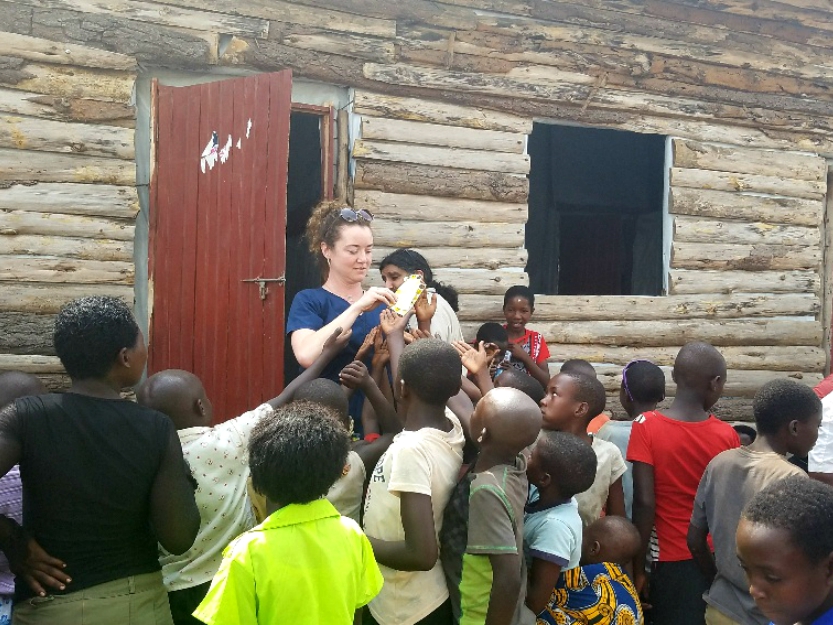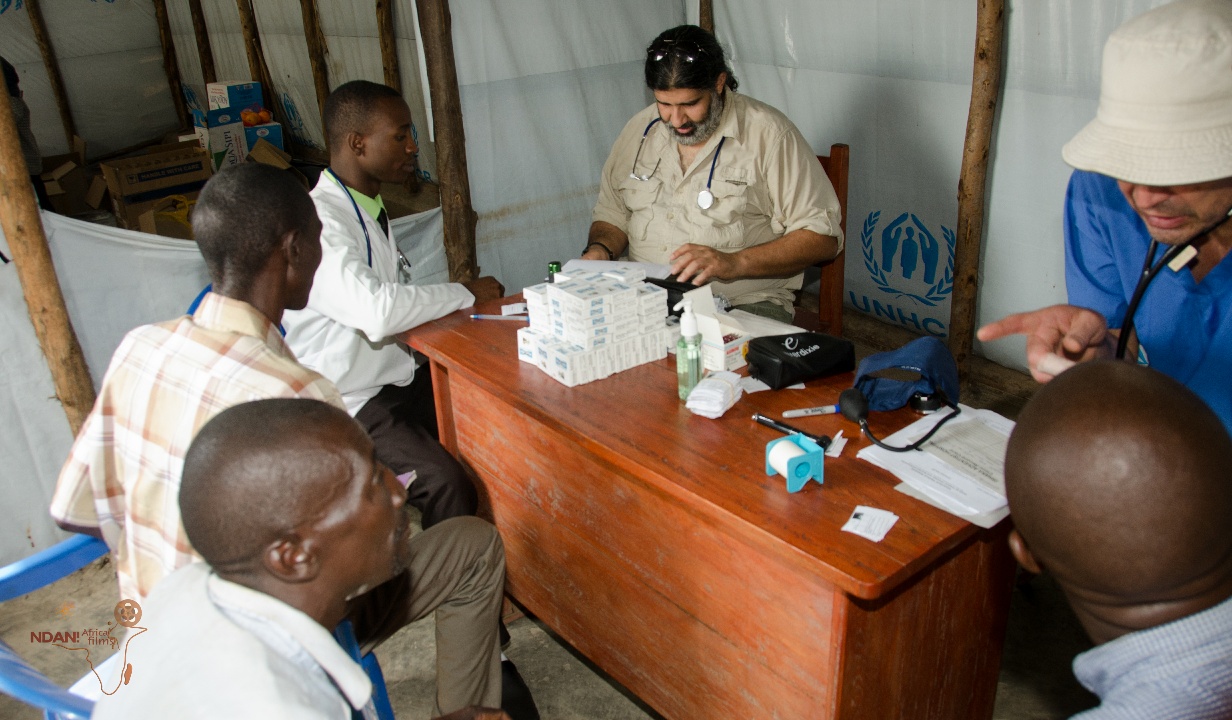
For the past 25 years, a group of physicians and other staff from Samaritan North Lincoln Hospital have participated in medical mission trips around the world, organized through the Seventh-day Adventist (SDA) Church.
This year’s two-week trip, held earlier this year, included two days at Rwamwanja Refugee Settlement in Uganda. More than 70,000 people live at the settlement, displaced by a brutal civil war in the neighboring country of Congo.
Next, the team spent five days in the city of Ishaka. Stationed outside of Ishaka Adventist Hospital, all care was provided outdoors, sheltered by tents.
Under the guidance of Dr. Erling Oksenholt, this year’s team included Dr. Raj Baman, Dr. Alexa LaFaunce and Dr. Janine VanSant, along with pharmacist Dr. Joe Evans, registered nurse Laura Smith and others from the community, including Johnie Souza, a mental health care provider. While the mission trip is sponsored by the SDA Church, mission participants need only be qualified and willing workers.

Samaritan North Lincoln Hospital has supported the trip all these years by allowing several providers and other clinicians to be away from work at the same time. The hospital has also provided medications for the teams to take.
As a guest on a recent radio broadcast of the “Samaritan Health Report,” Souza told about the trip from her point of view.
“The doctors were busy seeing people with an array of medical problems,” she said. “They saw an incredible garden variety of minor problems to major trauma. Ulcers, significant trauma from physical brutalization, someone suffering from headaches for 10 years, chest trauma from being hit with the butt of a rifle….”
This is the second year she participated. Previous trips have taken medical teams to where there is need and where there are connections to make it happen: throughout Africa, Asia and South America. Those not familiar with conditions in these third-world countries are quick to notice the infrastructure is quite different, the poverty is severe, and the culture is, of course, foreign.
“There is poverty in the U.S. and in Lincoln County, but there is no comparison to what I saw in Uganda,” she said. “Homes don’t have running water and a lot of people work very difficult manual labor jobs.”
As an example, Souza told about a woman with only one usable arm who picked tea leaves 12 hours a day in stifling heat as her only source of income.
While Souza provided some mental health counseling during the trip, her primary task was to provide counseling before and after HIV testing of patients.
“You have to put your western mindset away for a moment,” she said. “I told myself, pretend you are a citizen of the world and don’t place value judgments on others.”
For instance, it’s common in African countries for men to have more than one wife and to have mistresses. The wife has little moral or legal standing. Sexual assault is rampant.
“Their experiences are completely different from mine,” Souza said, “but it was important for me to engage immediately, to develop a rapport right away. People can tell if you really care or if you are just checking off a box. I had to get creative in helping women to be safe.”
The medical mission team members were assisted by the local university’s medical and nursing students, who acted as translators.
“My level of respect for the students is tremendous. Despite the severe poverty, they make every effort to get this education,” Souza said. “Dr. Oksenholt facilitates and encourages us to provide scholarships to the students so they can continue to do their work. A hundred dollars — that’s a month of coffee or soda at Starbucks for some people — that amount of money can help these kids finish their education, to become a doctor, a nurse or a midwife.”
After an incredibly intense and wonderful week of treating patients, the team took a week to decompress. Souza and others hiked into the Bwindi National Forest to see gorillas in the wild.
“It is so cool that Samaritan allows their staff to do this. It’s more than just sending people to work for two weeks. It’s paying it forward so the next generation of doctors and nurses and midwives can serve their own community. We are helping people achieve their goals.”





